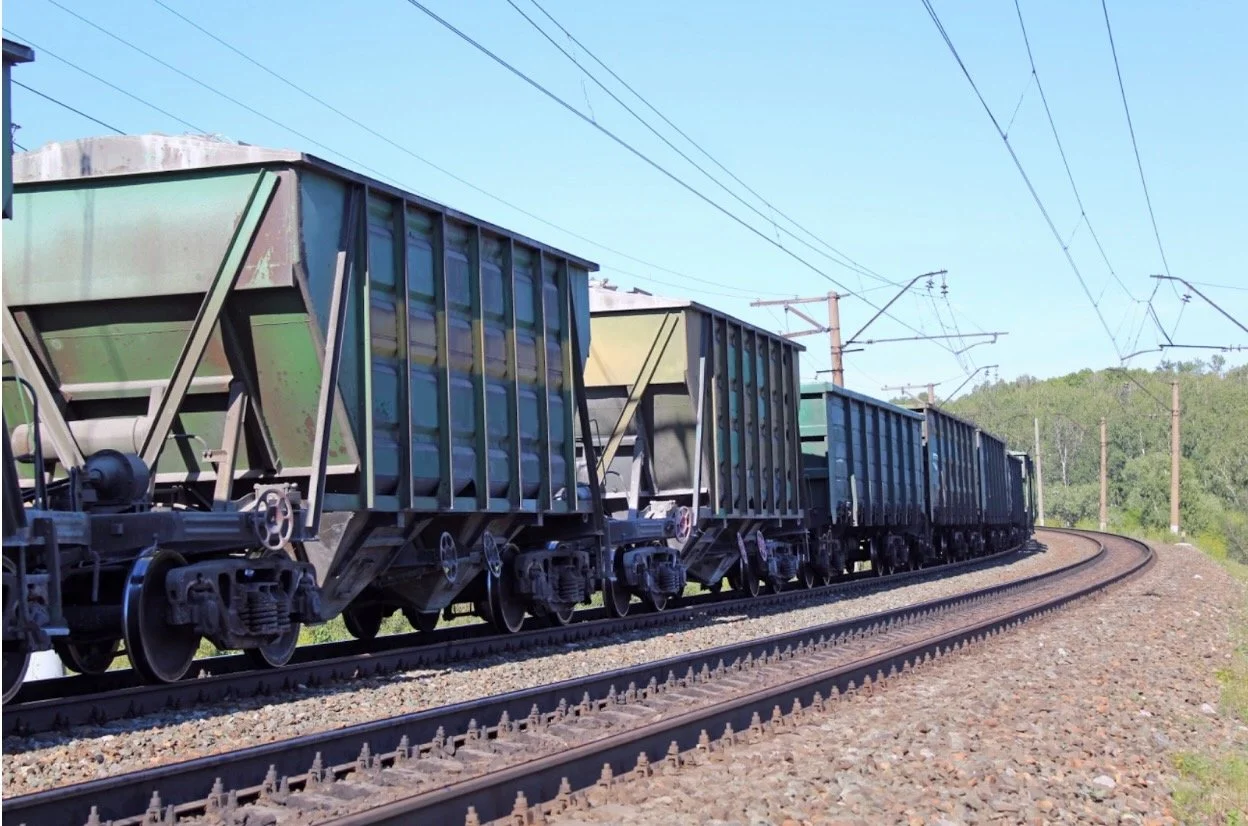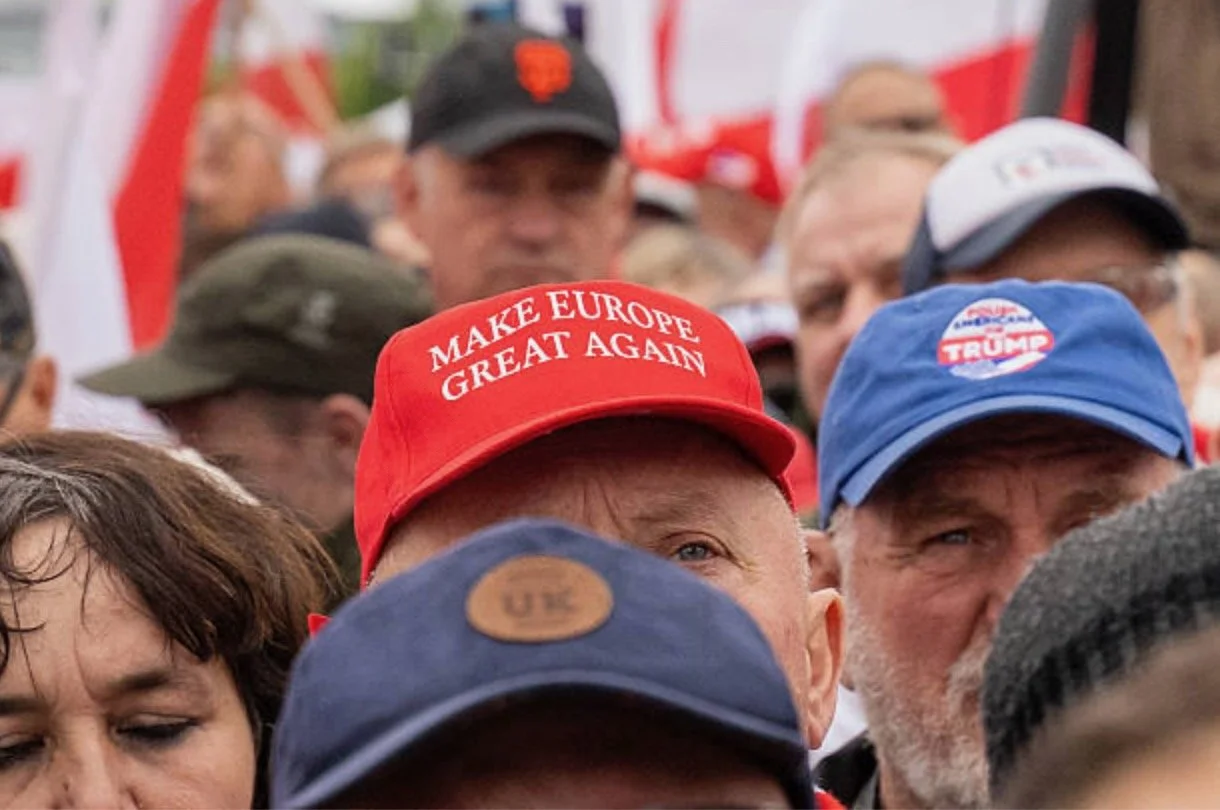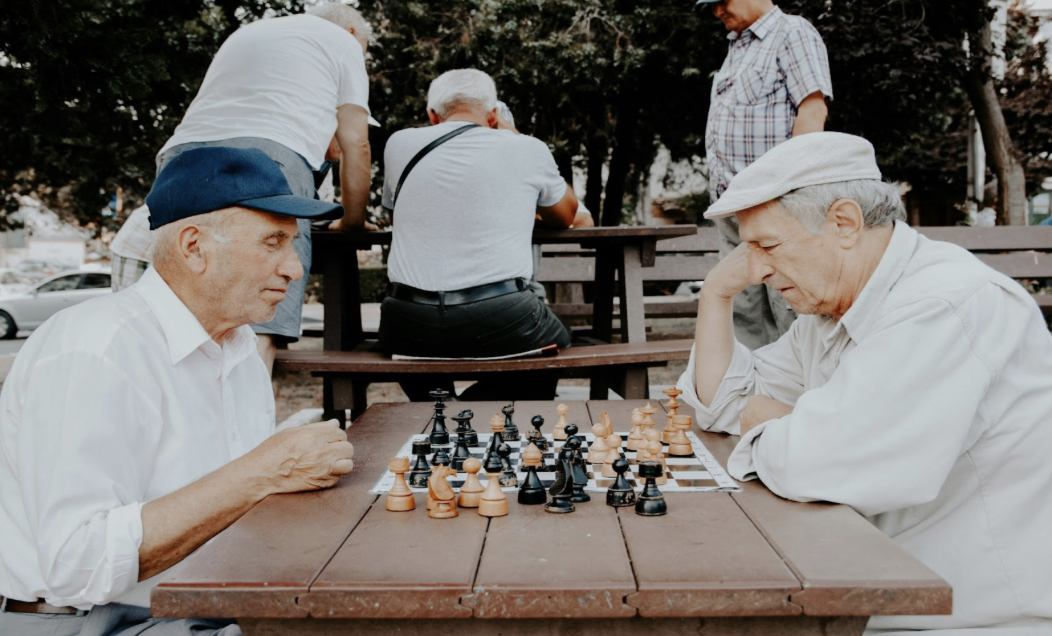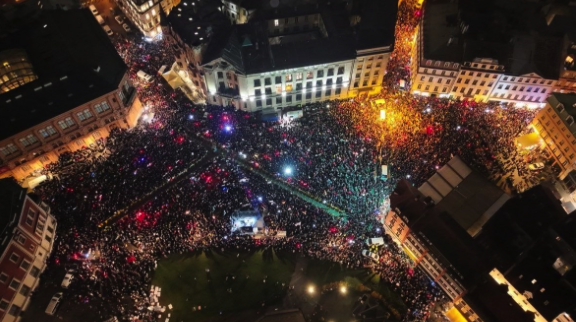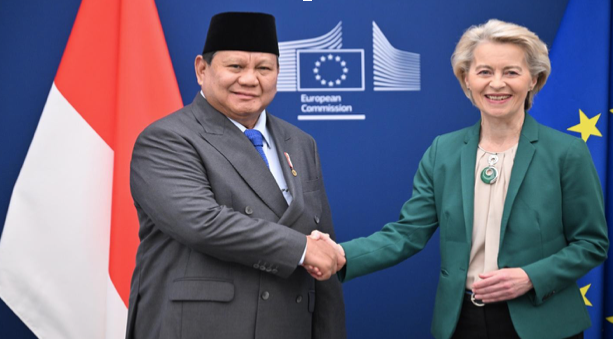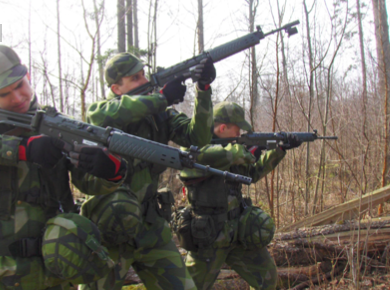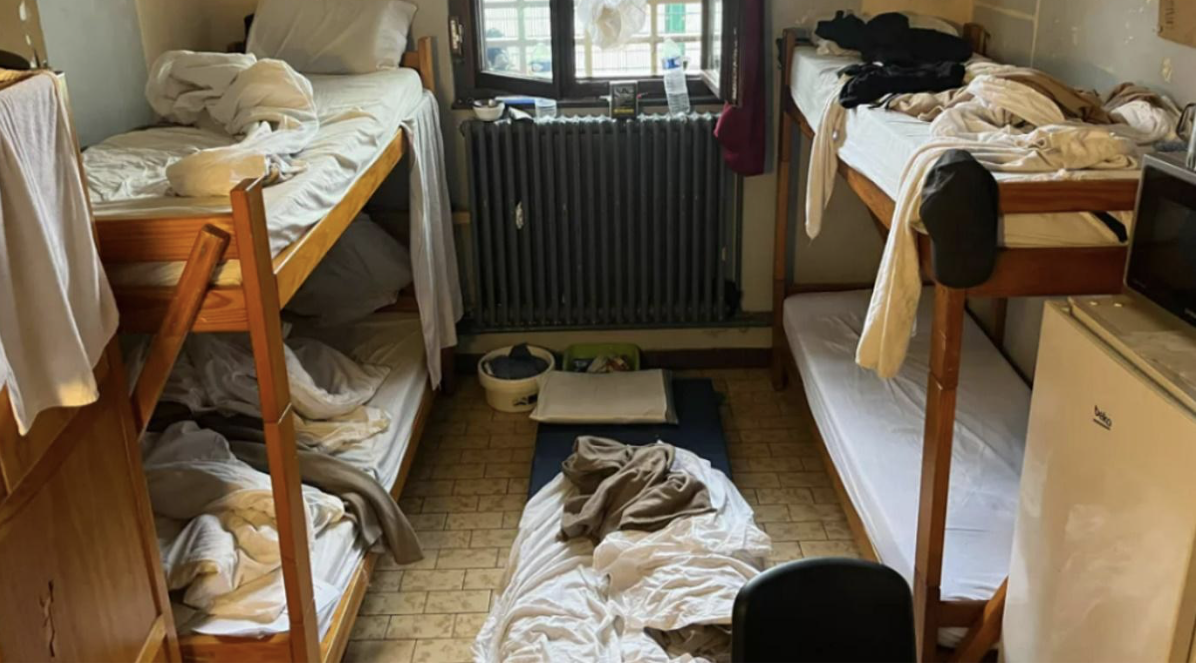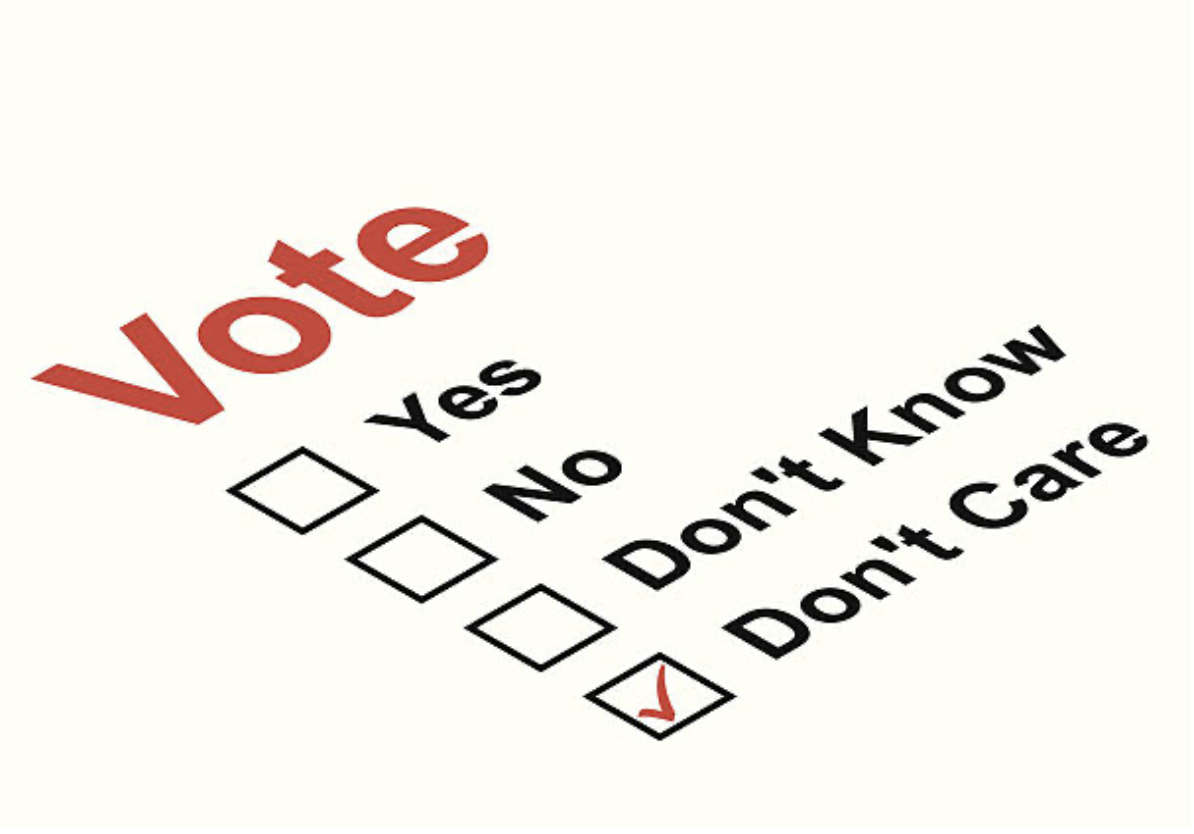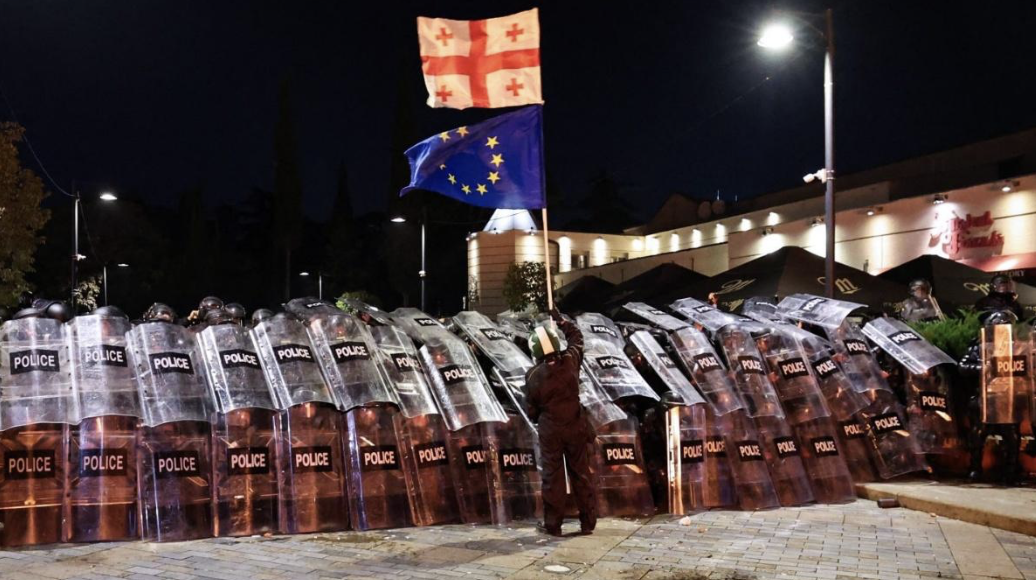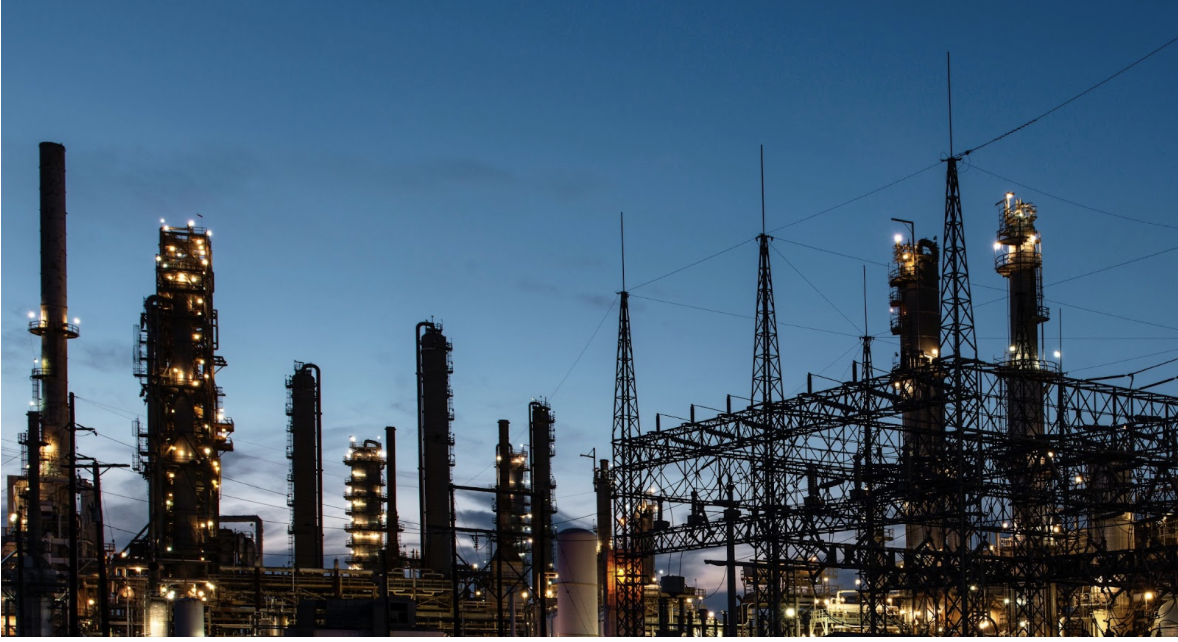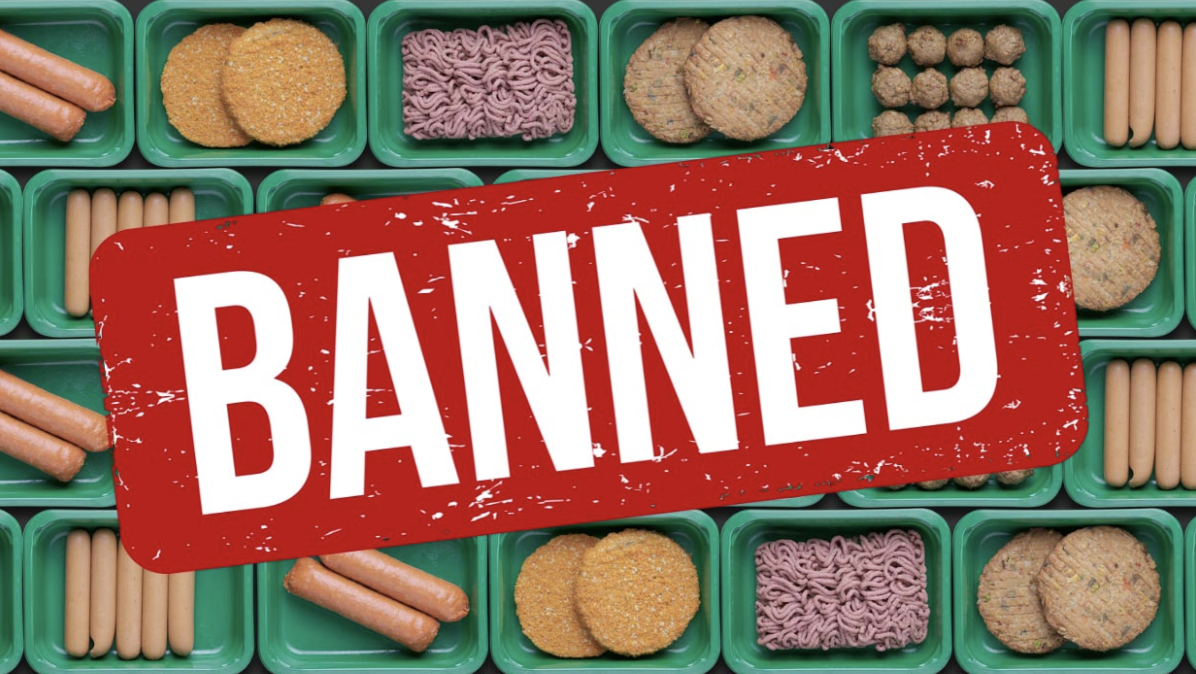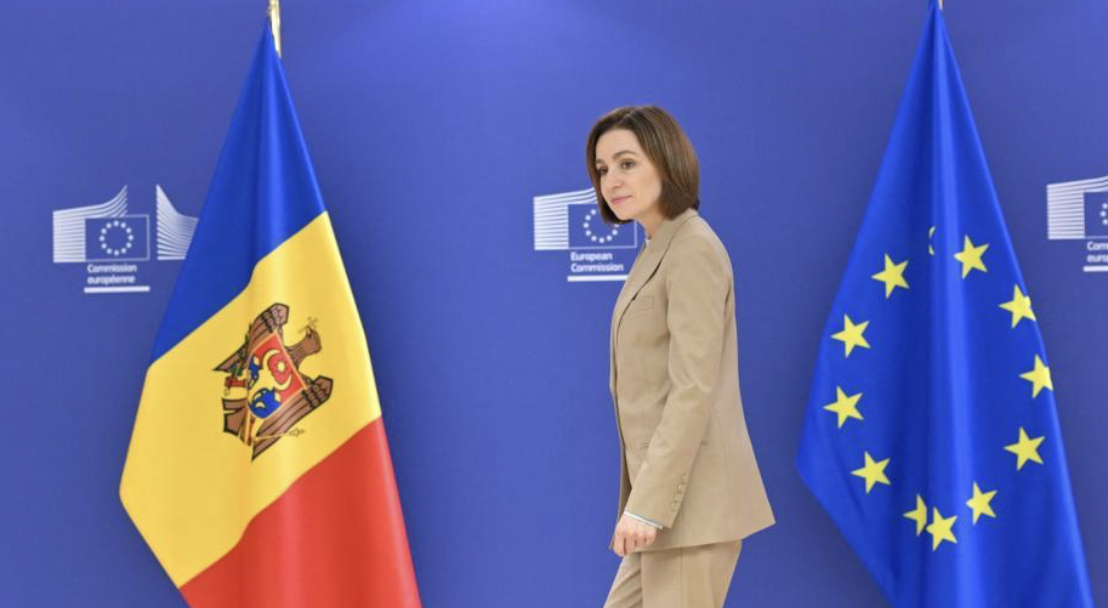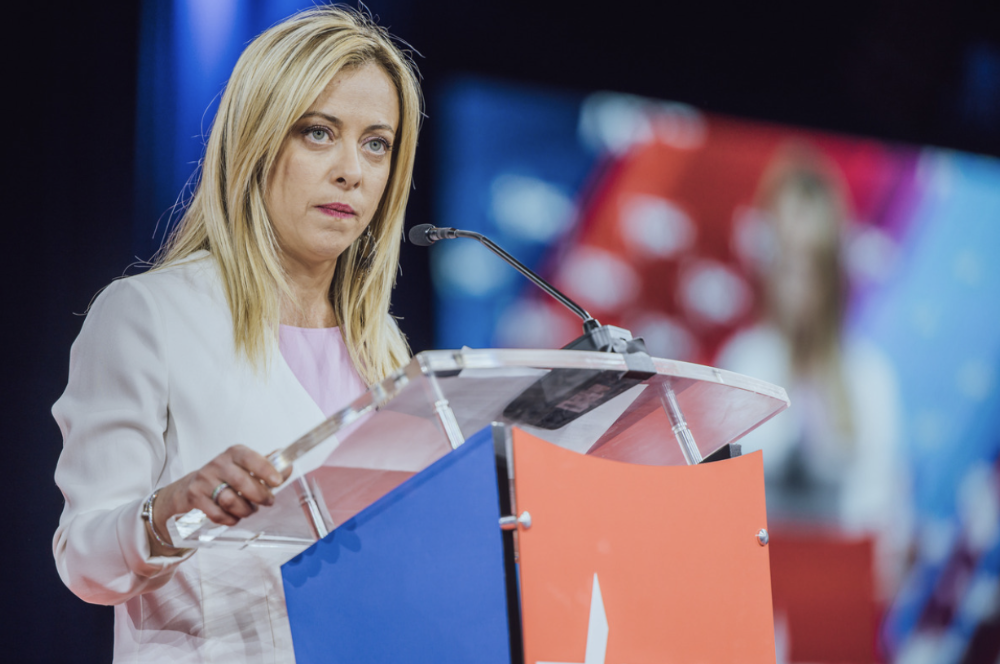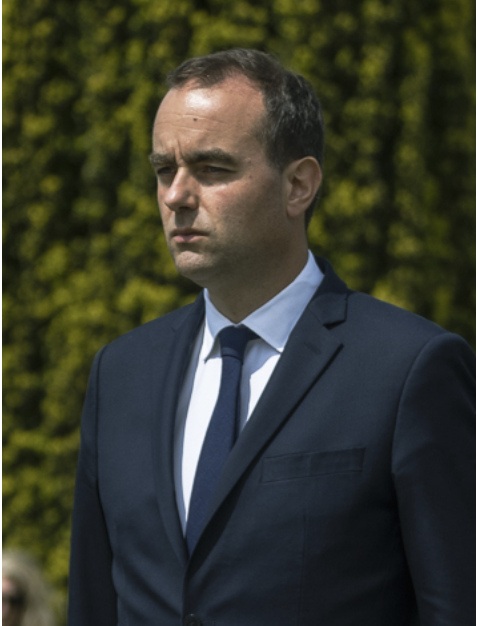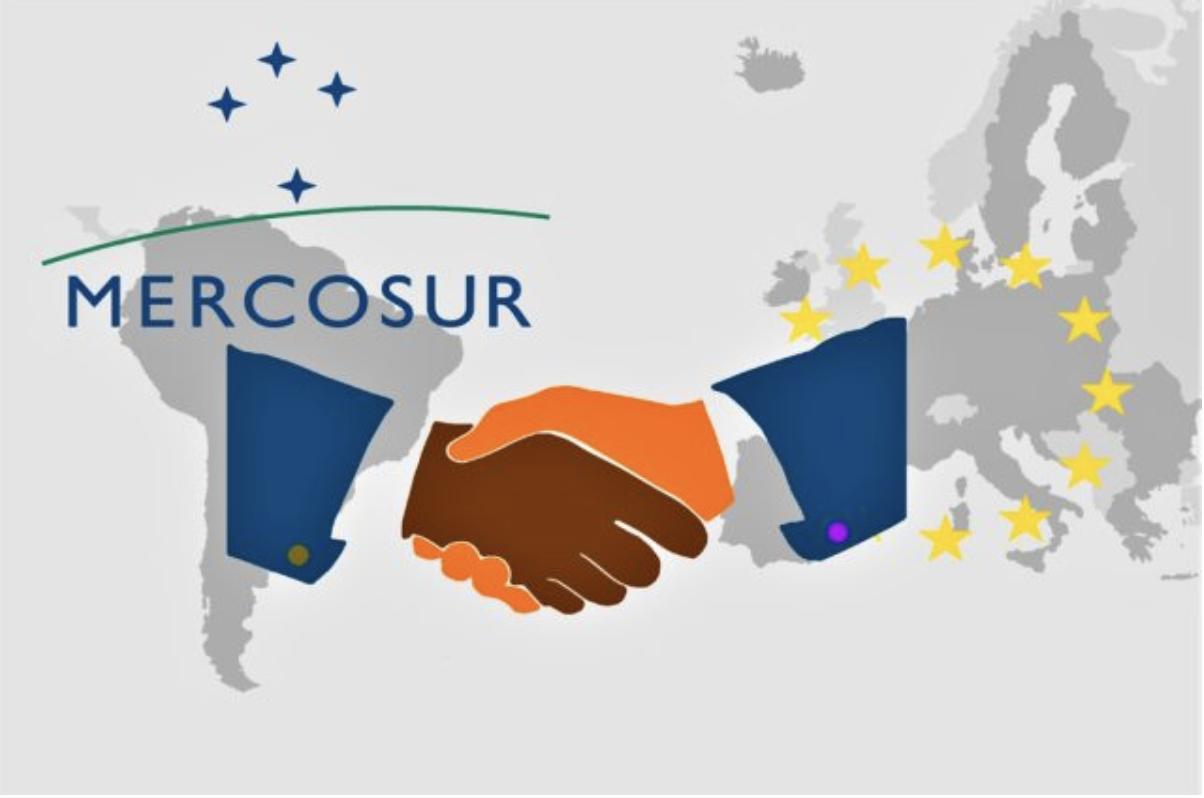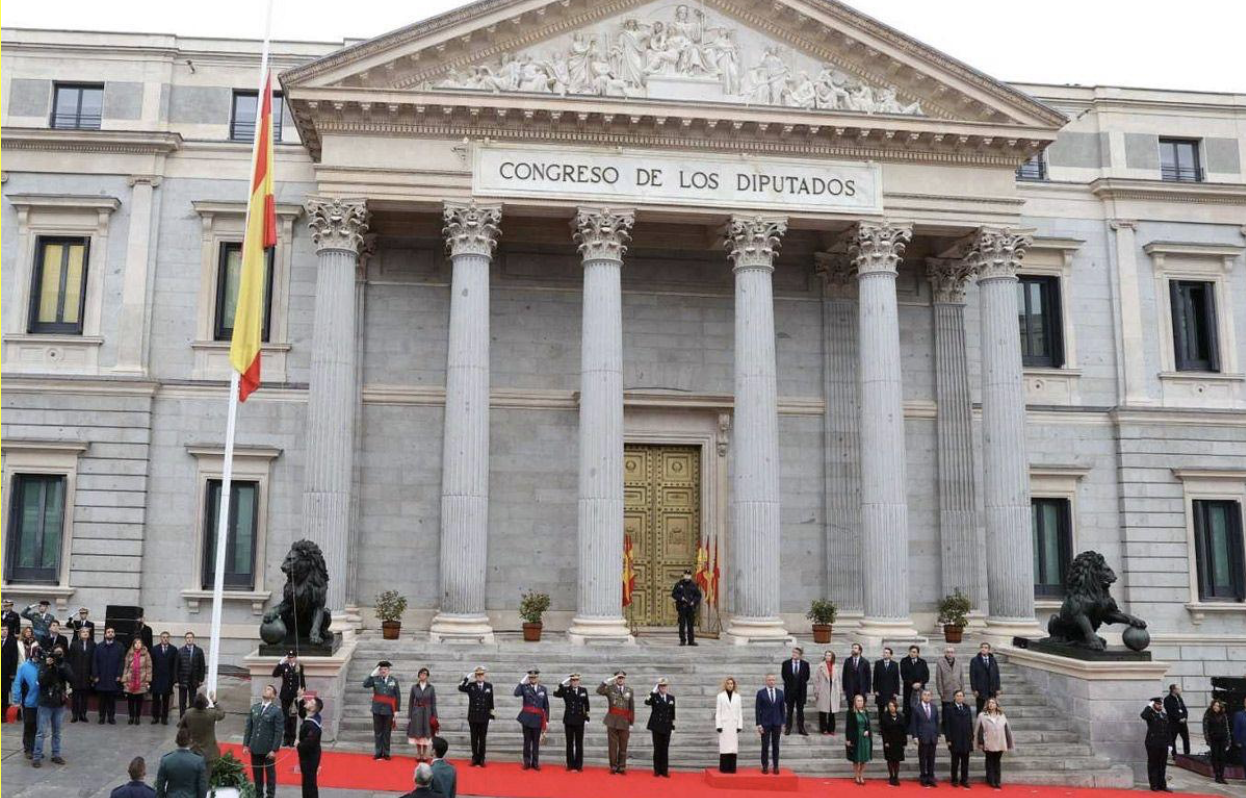
Beyond the Flags

Beyond the Flags offers in-depth analysis and useful explanations of current EU topics, helping you to enhance your knowledge and to foster your critical thinking.
Security starts at the Rail Station - Interview on military mobility with Terk Felix Kraft Part I
By: Olaia Mujika Anduiza and Lavinia Tacke, reading time: 8 Minutes
While Europe is discussing military issues mostly in terms of conscription and the reconfiguration of alliances, one topic that remains largely overlooked by the broader media is arguably more important than ever: the EU’s military mobility infrastructure. In recent years, the EU has faced a serious backdrop of capability gaps in its military mobility infrastructure. Some shortcomings have become so severe that countries are now considering reactivating long-unused and, in part, dysfunctional infrastructure. The scale and urgency of current demands, driven by support for Ukraine and the extension of NATO's border with Russia due to Finland's accession to the alliance, have exposed the limits of Europe’s existing capacity.
By Tricia Pelser, Estimated reading time: 4 minutes
The United States is widely regarded as one of the most influential nations in the world. Its dominant economic strength, military power, and cultural reach extend far beyond its borders and actively work to shape global trends. However, few movements have generated as much international political resonance as the rise of the “Make America Great Again” (MAGA) movement. Emerging from American conservatism, MAGA has not only transformed American politics, but some view it as leading certain European movements to seemingly mirror its political rhetoric, strategy, and ideology. As right-wing movements have begun and continue to gain traction, the parallels between their messaging and MAGA’s core themes have become increasingly apparent
By Aurora Dagnino, Reading Time: 4 minutes
A recent survey shows that the majority of the population in Britain, France, Germany, Italy, Poland and Spain consider their pension system to be unaffordable.
By: Nikola Kirkov
Reading time: 6 minutes
Latvia’s political landscape has been thrown into turmoil after a controversial parliamentary vote to withdraw from the Istanbul Convention sparked widespread protests and fears of democratic backsliding. As public demonstrations intensify and European partners express mounting concern, the furore has become a defining litmus test for Latvia’s commitment to human rights and EU values.
By: Lavinia Tacke
After nine years of negotiations, in September 2025, the EU officially finalized its trade deal with Indonesia, as part of its efforts to diversify its trade alliances following the Trump tariffs. However, this deal has sparked a debate concerning the human rights situation in Indonesia, the largest economy in Southeast Asia. Has the EU traded its commitment to human rights and its environmental values for an economic deal?
Written by: Anneke Pelzer, Reading time: 4 min
Countries abolished their mandatory military conscriptions, like Sweden in 2010 and Germany in 2011, when peace and security in Europe were still largely taken for granted. Over the past decade, starting with Russia’s annexation of Crimea in 2014 leading up to today’s ongoing Russia’s invasion of Ukraine, armies have become more important again. War feels closer to Europe’s capitals now, urging leaders to think about ways to step up their defense.
Written by: Margaux Baudry, Reading time: 4 min
More than 65,000 “alien” immigrants are currently detained in immigration jails across the United States. A historic record, which we can thank Trump’s administration for. Since the beginning of Trump’s second term, in February 2025, the Immigration and Customs Enforcement (ICE) Agency has been synonymous with fear for many people of color in the US.
Some now sleep with their passports beside them, carry their birth certificates wherever they go, avoid public gatherings, and, in extreme cases, choose not to leave their homes at all. The question looms large: What exactly is ICE, and how did it become such a force of intimidation?
By: Nikola Kirkov, Reading time: 7 min
This week, the European Union awoke to yet another episode of civil unrest in one of its Member States. Just 31 days before its planned entry into the eurozone, Bulgaria has plunged into an unprecedented political situation. On Wednesday, thousands of citizens gathered on the emblematic Independence Square in Bulgaria’s capital, Sofia, rallying around a giant pink piggy bank. The majority of the slogans on the protestors’ banner also featured the animal, a symbol of the ruling elite within the Eastern European country, which has long been accused of robbing Bulgaria of its money, features, and transparency. Following the large-scale protests, the government withdrew the 2026 budget, which had been scheduled to replace the lev with the euro officially. Now consultations are starting from scratch.
Written by: S.J.C Gunning, Reading time: 5 min
Mattresses in bathrooms, prisoners “having to eat their meals standing up or sitting on the floor, sometimes with no access to basic amenities like pillows or clothes-washing facilities,” and even the rape and murder of prisoners by their own bunkmates in overcrowded prison cells are not the anecdotes of a survivor of the gulags but rather features of everyday life for prisoners in more than half of the European Union’s member states. According to the most recent Eurostat survey, taken in 2023, 14 countries had some extra capacity while 13 countries had none at all and had to overcrowd existing cells. However, more recent data from the World Prison Brief adds Portugal and Hungary to the growing number of EU member states with prison occupancy rates above 100%.
What may be surprising is that there is a total absence of a positive correlation between the incarceration rate and prison occupancy rate in the surveyed countries. Cyprus, with by far the worst prison overcrowding crisis in Europe, had an incarceration rate of just 101 (per 100,000 citizens) in 2023. This was well below the EU average of 110 and positioned it on the lower side of the distribution relative to the mode, as seen below
By Aurora Dagnino, Reading time: 5 minutes
Pizza, pasta, lasagna ....everyone loves Italian food! Indeed, Italians are so deeply proud of their culinary traditions that they have even sought recognition of Italian cuisine as Intangible Cultural Heritage of Humanity. As an Italian, I have to admit we can get quite defensive when someone unintentionally ‘offends’ our cuisine by reproducing it the wrong way. Italy’s Minister of Agriculture, Francesco Lollobrigida, clearly felt the same when he discovered Delhaize’s so-called ‘carbonara sauce’ being sold inside the European Parliament in Brussels, calling it ‘unacceptable’. Delhaize's version contains cream and pancetta, which are not included in the traditional recipe from Rome.
By Juliane Trabandt, Reading time: 3min
We are constantly being bombarded with negative news – rising populism, failing democracies, and wars take place increasingly around us. This constant exposure can lead to increasing fears and anxieties around politics and make it hard to stay informed and feel hopeful. It is no wonder then that some of us choose to completely tune out, as it may feel like a negative emotional overload. Others, on the other hand, may choose to treat politics more like entertainment in the form of snippets of debates, memes, or viral clips. This political disengagement is becoming increasingly visible across Europe, and the issue is that it is destabilising our democracy.
By Olaia Mujika Anduiza, reading time 7 minutes
On October 9, China announced a halt on exports of rare-earth processing tools, battery equipment, and ultra-hard materials used in semiconductors, solar panels, and armor-piercing ammunition. These are essential for clean-tech and defense industries, and the EU relies on China for nearly 99% of its supply. However, in the last week of October 2025, China announced a one-year suspension of these export controls for both the EU and the US.
This suspension (importantly, not removal) is good news for the EU in the short term, as it temporarily eases pressure on European supply chains. Nevertheless, in the long run, uncertainty remains due to Europe’s deep dependency on Chinese resources, and the realization that this is about much more than access to critical materials. It is about ideology and global power structure.
Written by: Nikola Kirkov, reading time: 11 minutes
Four years ago, the European Union opened a door for three Eastern European states to pursue the long-dreamt goal of joining the alliance. The ‘Association Trio’, comprising Georgia, Moldova, and Ukraine, came together to sign a joint memorandum expressing their shared commitment to ‘cooperate to enhance their political association and economic integration with the EU.’ Four years later, the three former Soviet states are moving in polar opposite directions.
In the present day, Moldova celebrates a pro-EU victory in recent elections, and Ukraine actively pursues a future within the Union, despite the ongoing war. And then there is Georgia. A country on the crossroads between Russia and Europe, where protests have been ongoing since last year’s parliamentary election. The demonstrations and pressure from the EU have not been able to shake the Georgian Dream’s authoritarian and Kremlin-inspired chokehold on the country’s politics, which aims at realigning the country with Russia, of whose Soviet empire it once formed part.
by Margaux Baudry, reading time 2 min 40
The Great Energy Decoupling
Launched in May 2022, REPowerEU aims to sever Europe’s reliance on Russian hydrocarbons. The initiative rests on four pillars: saving energy through efficiency, diversifying oil and gas suppliers, accelerating renewable energy, and investing in infrastructure such as LNG (Liquefied Natural Gas) terminals and hydrogen networks.
The numbers show progress, but not victory. Russian gas accounted for 40% of EU imports in 2022, 15% in 2023, ticked up slightly to 19% in 2024, and is expected to fall to 13% in 2025. It’s a sharp decline, but the Kremlin’s energy shadow hasn’t disappeared.
By Tricia Pelser, estimated reading time: 6 minutes
At the beginning of October, a proposal known as Amendment 645, aimed at strengthening farmers' position in the agri-food supply chain, was brought to the European Parliament. This proposal included a bizarre and seemingly unnecessary amendment to restrict the use of so-called ‘traditional’ meat-related terms, such as “burger”, “steak”, and “sausage” for plant-based alternatives, which the Parliament surprisingly approved. But what does this amendment even mean? How is it relevant, and where did it come from?
By Seán Doherty, reading time: 4 minutes On 28 September 2025, Moldova’s parliamentary election took place amid significant tension in the former Soviet republic. The choice for many voters was simple: a pro-European party striving for EU membership or a shift back to Russian-friendly relations and heavy Kremlin influence over the nation of 2.5 million inhabitants. In an election viewed as pivotal for the country’s future direction, Moldovan president Maia Sandu’s Action and Solidarity Party (PAS) was pitted against the pro-Russian Patriotic Electoral Bloc. Given Moldova’s EU candidate status since 2022 and Sandu’s intention to join the European Union by 2030, the result has been decisive for Moldova’s future.
Despite severe allegations of Russian interference in the election, Sandu’s pro-EU party went on to outperform pre-election polls and emerge with a convincing majority: just over 50% of the vote. This also means it can form a government without needing any coalition partners, something that could have hindered the party’s EU accession plans. Patriotic Electoral Bloc finished the election in second with 24%. That three-quarters of the 1.6 million voters supported either PAS or Patriotic Electoral Bloc highlights the importance of the election. One could argue that this was a straight shootout between Europe and Russia.
By Anneke Pelzer, Reading time: 4:30 min
If you opened your phone in the morning of the 10th September you most likely were greeted by headlines like „Poland says it shot down Russian drones after airspace violation“ or „Poland downs drones in its airspace, becoming first NATO member to fire during war in Ukraine“. And it was surprising: the night before, at least 19 Russian drones invaded Polish airspace. This marked the most serious Russian provocation since the invasion of Ukraine in 2022.
By by Margaux Baudry, reading time 2min30
While the rest of Europe watches each election anxiously, wondering if this will be the one that brings a far-right victory, Italy crossed that threshold three years ago. As the country celebrates this anniversary with Giorgia Meloni’s Fratelli d’Italia (Brothers of Italy) leading the government, it’s worth asking: Did Italians truly get the transformation they were promised, or merely a new face preserving the same old system?
Is France Ready for the Sixth Republic?
This is one of the headlines we have repeatedly seen over the last few months – if not years. Three weeks ago, these calls came up again when Prime Minister Lecornu resigned just a few hours after the announcement of the new government. The situation begs the question: what makes France so ungovernable?
The “cows-for-cars” deal: How the EU-Mercosur Pact Rewires Influence and Access By Olaia Mujika Anduiza, estimate reading time: 7 minutes
After more than 25 years of negotiations, the EU-Mercosur Agreement has returned to the forefront of European political and economic discussions. Supporters call it strategic, while critics label it a sellout. However, both parties are reacting to the same reality: this agreement is more than simply about tariffs, rather, it reshapes EU influence, access, and dependence.
50 Years After the Fall of Franco’s Dictatorship - Where Does Spain Stand Today?
By: Lavinia Tacke, reading time: 4 minutes.
Fifty years after Spain’s last dictatorship, the country still grapples with its turbulent past while shaping its future. In 1975, the last dictatorship in Europe came to an end when the Spanish dictator Francisco Franco died on November 20th. The Franco dictatorship was one of the longest in Europe, lasting from 1939 to 1975. It is known for its extreme brutality against the Spanish people, including the establishment of concentration camps, the use of forced labor, and executions. It is estimated that between 200,000 and 400,000 people died “in more than 190 concentration camps.”
by: Jolanka Kocianova Vuong
Reading time 7 mins 20 sec
When writing Part 1 of the article, I did not place on a second article on the political climate in Slovakia. Unfortunately, the situation in Slovakia has not calmed down. It seems that things have further spiralled out of control. Slovakia experienced a coalition crisis at the beginning of the year, causing the parliament to be suspended for months, only to be solved by possible hidden bribery. Once the crisis was solved, the government was free to go on in its typical style: mismanaging an epidemic, assuring Russia of Slovakia’s support, bringing Slovakia’s cultural institutions to the verge of collapsing, and most recently building villas out of Eurofonds. The list goes on and on. Read on to find out more.
By Kristoffer Saetre and Agnese Porro
Reading time: 4:30 min
“The era of the peace dividend is long gone. (...) Europe is ready to step up.” With these words, Commission President Ursula von der Leyen presented the Commission’s White Paper on European Defence. In a paradigm shift, the EU responds to evolving threats in the contemporary European security environment.
By Ben Rosenbaum, Reading Time: 3 minutes
Stunning, remarkable, historic…those are just some of the words used to describe the recent election results in Australia on the third of May. Against the odds, the Australian Labor Party won a second term for Prime Minister Anthony Albanese, in what is widely seen as a repudiation of US President Donald Trump and his ideological partners in Australia. However, can Trump alone be blamed (or thanked?) for the result?
By Gabriel Panza, 2 Minutes 30 seconds
Imagine waking up ready to start your day, only to be plunged into darkness without any warning. On April 28th, this alarming scenario became a reality for millions across Spain, Portugal, France, and even Belgium. This event left residents and businesses across the Iberian Peninsula scrambling, raising questions about the resilience of Europe’s energy grid and the threats lurking beneath modern power networks.
Author: Miruna-Antonia Aniculăesei
Read time: 3:28
Since 1974, the European Union, formerly known as the European Communities, has been conducting the Standard Eurobarometer survey as a way to spread information about the organisation itself and gather support, as well as as a method of measuring the public level of satisfaction towards the EU. For almost 51 years, the Eurobarometer has shown the EU publics’ overall opinion on a diverse selection of EU matters and the way in which these opinions shift in response to crises After a turbulent period of crises, one would expect a decrease in public support for the Union, but what do the public opinion polls actually tell us about citizens’ reactions?
By: Lavinia Tacke
Reading time: 6 minutes
On Monday, April 28, Canada elected a new Prime Minister after the former leader, Justin Trudeau, resigned as leader of the Liberal Party and as Prime Minister in January. The new Prime Minister is Mark Carney, who already took over after Trudeau’s early resignation. Carney’s main campaign promises were to cut taxes for the middle class and to remove trade barriers between the provinces.
By Anna-Magdalena Glockzin, 4 minutes.
When Former Swedish Foreign Minister Margot Wallström announced in 2014 that Sweden would adopt a Feminist Foreign Policy (FFP), she and Sweden as a country pioneered a feminist lens into foreign policymaking. This approach has often been ridiculed and not taken seriously, as foreign policy is regularly considered gender-neutral. In particular, it is perceived as “soft” and unable to counter crises and aggression. But is this true? What can FFP do, and who benefits from it? This article aims to dive deeper into the concept and the meaning of FFP, as a follow-up on my previous piece on the uncertain future of Feminist Foreign Policy in Germany.
By Margaux Baudry, read 3 min
On May 7th, 2025, the thick wooden doors of the Sistine Chapel will once again close behind 133 Catholic cardinals- the electors tasked with choosing the next Pope. But this time, the air is less incense and more tense. Following the death of Pope Francis at the age of 88 on April 21st, the Church faces one of its most unpredictable and fractured conclaves in modern history. With more electors, deeper ideological divisions, and an increasingly globalized Church, this isn’t just about white smoke- it’s about what kind of Church emerges from the ashes.
By Ben Rosenbaum, Reading Time: ca. 4 minutes
With so many other crises dominating the EU’s agenda, the issue of climate action is much less prominent in the news compared to 6 years ago. But is this development also true for the EU’s actions to combat climate change, or are we just not hearing about it?
